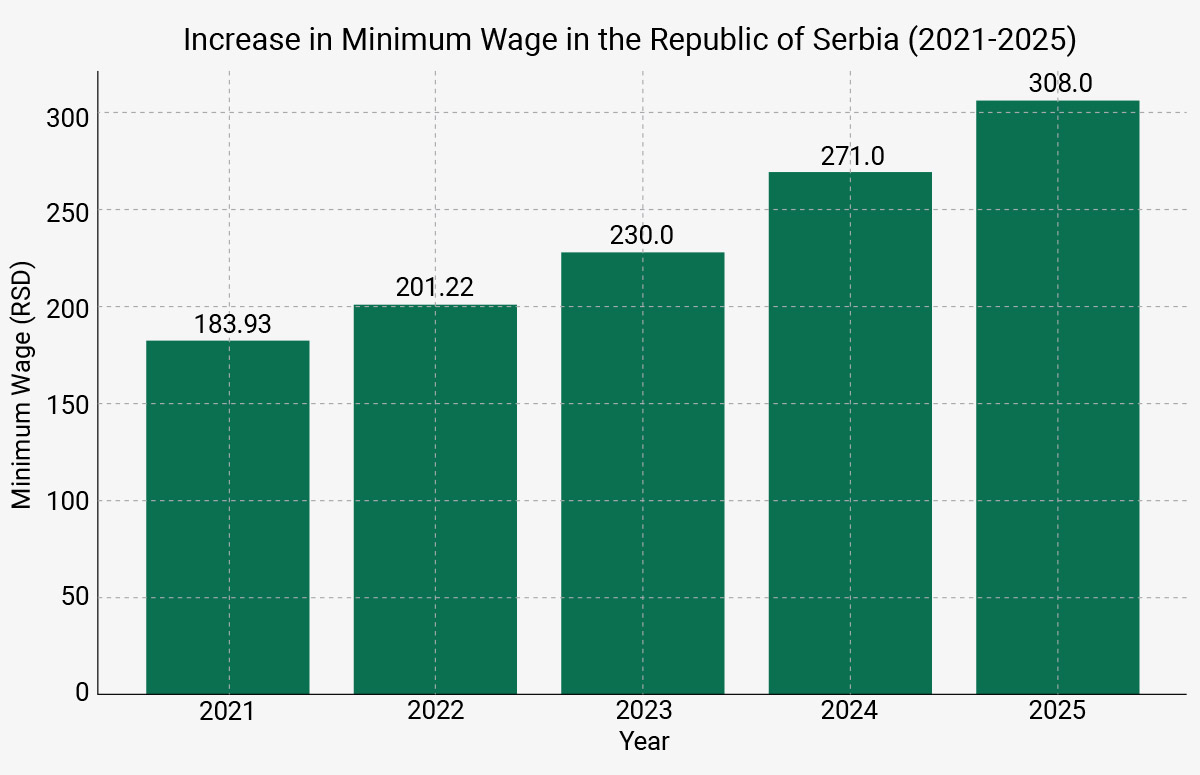Miloš Krvavac • September 10, 2024
Minimum Wage in 2025
The increase in minimum wage represents one of the key issues in the labor law and social politics area. Minimum wage in the Republic of Serbia is regulated by Article 111 of the Labor Law, which defines it as the lowest amount an employer has to pay to their employee for standard performance and the time spent at work. This amount is determined by the decision of the Socio-Economic Council and revised on a yearly basis, taking into account living expenses, employment trends and inflation. As a topic, the increase in minimum wage attracts attention every year, due to its direct impact on living standards of employees, business competitiveness and the stability of the labor market.
During the session dated 08/28/2024, the Socio-Economic Council made the decision that in 2025, minimum wage will be increased – the monetary amount for one working hour will be RSD 308 net, which, compared to 2024, is a 13.7% increase. Minimum wage for the next year will amount to RSD 53.592 net.

In addition to the increase in minimum wage, an increase in the non-taxable income of employees has been announced – the increase will amount to 13.7%, i.e., instead of the current RSD 25.000, it will be RSD 28.423. The increase in the non-taxable income represents a concession to employers, as this amount is applied when calculating and paying taxes on wages and wage compensations.
According to official data, around 100.000 employees in Serbia receive a minimum wage income.
Minimum Wage Income in the Western Balkans
In the recent years, following inflation and economic conditions in the region, minimum wage has been rising in the Western Balkans. With the current minimum wage income, Serbia can be found in the middle of the minimum wage income list. According to the available data, Slovenia is at the top of said list, with the minimum net income of EUR 1.203 per month. Bosnia and Herzegovina occupies the last place, with the minimum net income of EUR 316 per month. These differences in minimum net income represent consequences of specific economic policies and different living expenses in each country. Changes in minimum wage are becoming a crucial factor in labor force competition in the region, as well as in attracting foreign investments.


